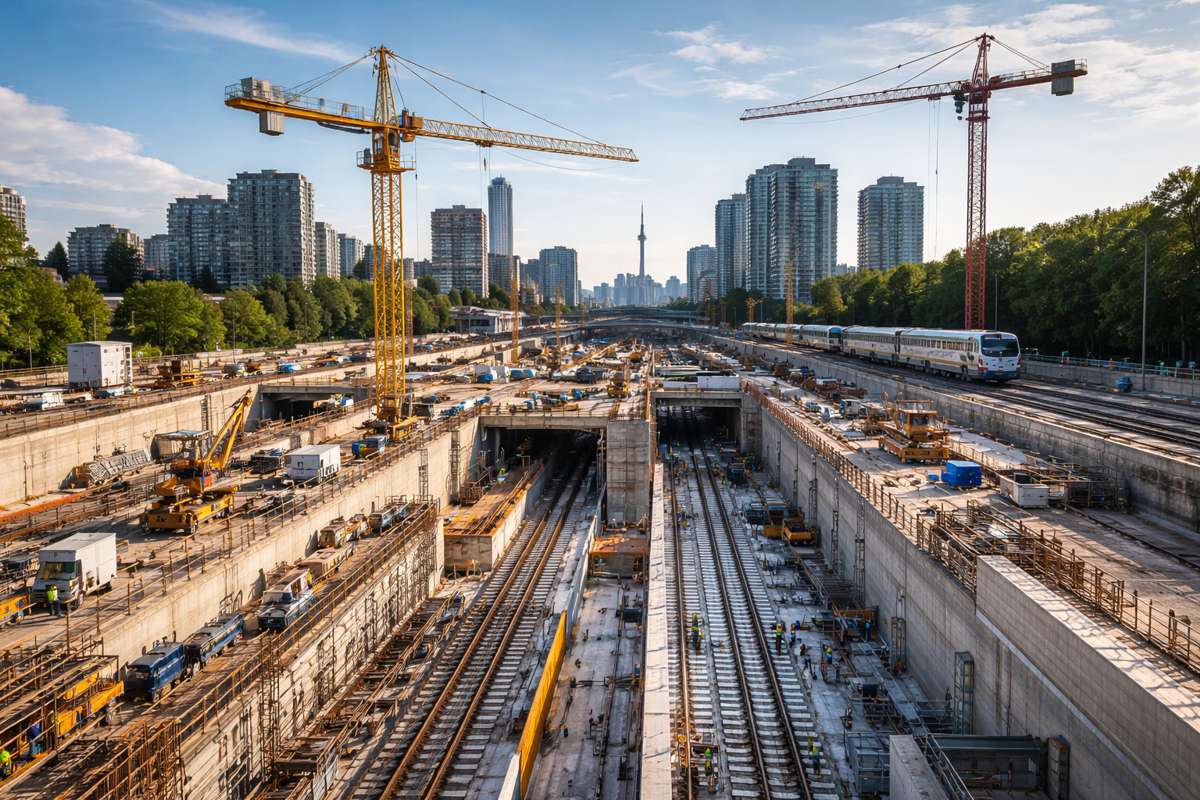NIC recommendations could ensure the UK benefits from world class infrastructure
Ministers have a real and exciting chance to set the course for the UK to have world-leading infrastructure, Sir John Armitt said today. The chairman of the NIC (National Infrastructure Commission) pointed to the action taken to date to enact the Commission’s recommendations – and the central role that infrastructure plays in the Government’s Industrial Strategy – as measures that could help secure the UK’s international reputation in this area.
But he urged Ministers not to “take their eye off the ball”, and to go even further and faster to help meet the country’s needs both for now and into the future.
This is a central finding from the National Infrastructure Commission’s Annual Monitoring Report published today, which offers an assessment of the Government’s actions against its recommendations.
Sir John particularly highlighted the UK’s first-ever National Infrastructure Assessment as offering the much-needed long-term plan of action that offers fully-costed recommendations looking as far ahead as three decades.
He urged Ministers to adopt these proposals in the forthcoming National Infrastructure Strategy – on top of those already being followed to halve water leakages by 2050, and to offer Government support to deliver full-fibre across the country and including in rural communities.
Sir John also called on the Government to move beyond the quickest-to-implement of the Commission’s wider recommendations from its six other reports, and to make “bold and brave” decisions on making those others that have already been accepted a reality.
He particularly highlighted the poor progress made towards improving mobile connections on the UK’s road and rail networks – an issue on which greater ambition and better coordination between departments could deliver much needed service improvements for passengers.
The National Infrastructure Commission plans to look further into this issue, the findings of which could help Ministers to make much-needed progress.
Chairman of the National Infrastructure Commission Sir John Armitt said: “There is a real and exciting chance available to ensure the UK benefits from world-class infrastructure, particularly through the forthcoming National Infrastructure Strategy – a first for this country. We cannot afford for Ministers to take their eye off the ball.
“With this issue at the heart of the Industrial Strategy, I would urge the Government to adopt the recommendations from our National Infrastructure Assessment, and use this to offer industry the long-term, fully-costed infrastructure plan they need.
“But I also want to see Ministers go even further and faster in enacting those more challenging proposals from our six other reports, where progress has been lagging in certain areas – such as improving mobile connections on our road and rail networks and in delivering new homes, as well as transport connections, across the Growth Arc spanning Cambridge, Milton Keynes and Oxford.”
Ensuring world-class infrastructure for the future
The National Infrastructure Commission was established in 2015, and offers independent advice to Ministers on meeting the country’s future infrastructure needs.
Today, as the Commission published its second Annual Monitoring Report, chairman Sir John Armitt outlined two key ways in which the Government can help ensure the UK can have world-class infrastructure:
A clear National Infrastructure Strategy – Sir John highlighted the fully-costed and ambitious recommendations in the UK’s first-ever National Infrastructure Assessment, and urged Ministers to adopt them in the Strategy, due later this year; and
Making ‘bold and brave’ decisions – to date, the recommendations adopted and enacted by Ministers have been the quickest to implement; Sir John urged action on those more challenging proposals from the Commission’s reports that the Government has committed to enact but where progress has been lagging – these especially include recommendations that cut across more than one Government department, and offer the opportunity for better and closer working between Ministers and officials to achieve.
Improving the UK’s infrastructure network
Today’s Annual Monitoring Report looks across the six sector-specific reports that the Commission has published since 2015, covering 45 recommendations to Government – 42 of which have been accepted.
Of those 42 recommendations, 10 are now considered to have been fully met – including the introduction of better measuring of mobile connectivity, moves towards improving rail connections between Leeds and Manchester and efforts to deliver a smart and flexible energy system.
However, progress against the remaining 32 recommendations accepted by government has been varied. There are many areas where significantly increased momentum is required to meet the Commission’s recommendations.
The report particularly highlights the limited progress made in improving mobile connections on the road and rail network – leaving passengers without the signal they would rightly expect during their journeys.
This is despite the recommendations on this issue being made in December 2016, and accepted a year later.
The Annual Monitoring Report has recommendations for action by the Government over the next year to address this issue, including:
Setting out next steps on mobile connectivity for rail in 2019 – essential to offer clarity for suppliers, and for ensuring the necessary trackside infrastructure is in place by 2025, to keep in step with deployment of new 5G networks; and
Developing a plan for scaling motorway mobile connectivity beyond existing trials by the end of 2019 – this would enable delivery of these new connections by 2025 at the latest, and meet the needs of driverless cars using the UK’s roads in future.
But Sir John Armitt also highlighted plans for the National Infrastructure Commission to examine this issue even more closely, and consider the barriers to making progress – findings which could help the Government to take action in the near future.




















